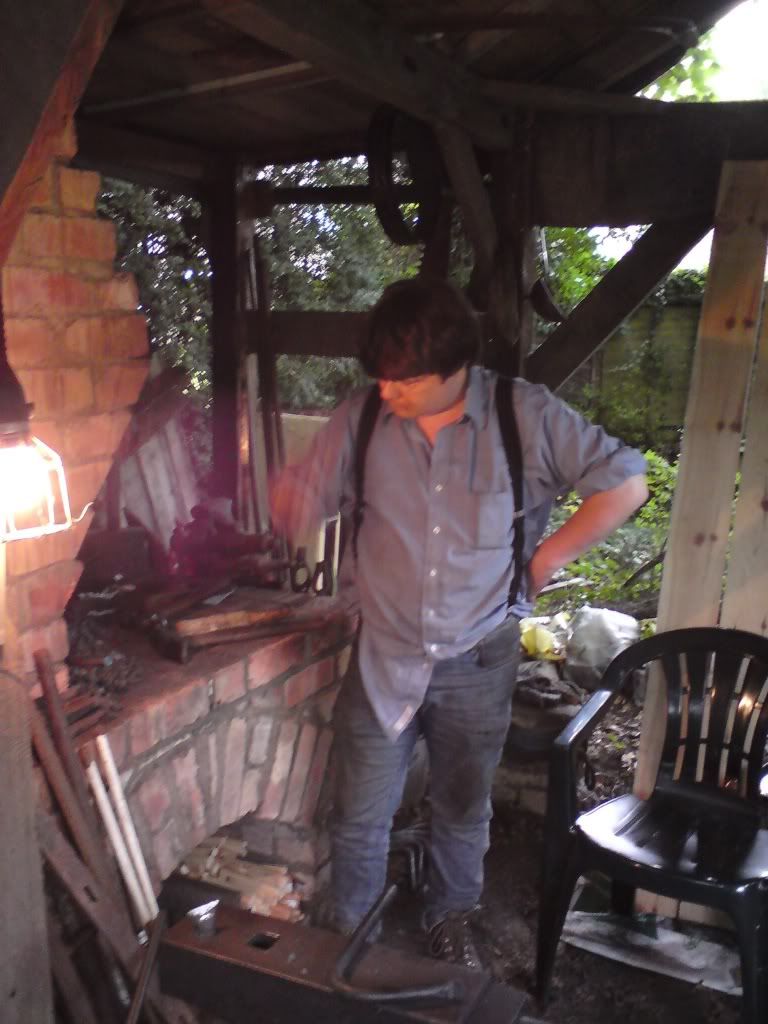Well done Studders... how very slow was I in overlooking the actual stock... good grief!!
Damn, Richard - not so much about raising a Landie, but the Roy U video... First, your land Rover wagon vise / vice - that is why they are called wagon vices I guess. It'll be good, do all we need it to, it's just that I need really shiny things.
Now then. BENCHES. Elsewhere here I've been examining the addiction to hand planes. Well, actually, I have a problem with benches. While the current is on hold pending a tail, the next is half-way designed.
Fell upon some very old oak beams a few weeks ago... so a 6" thick, 6' long, leg vice, and leg tail. Very plain, but dovetailed legs to top. (See Roy U's video Richard pointed out).
Now, that's what I need...



































